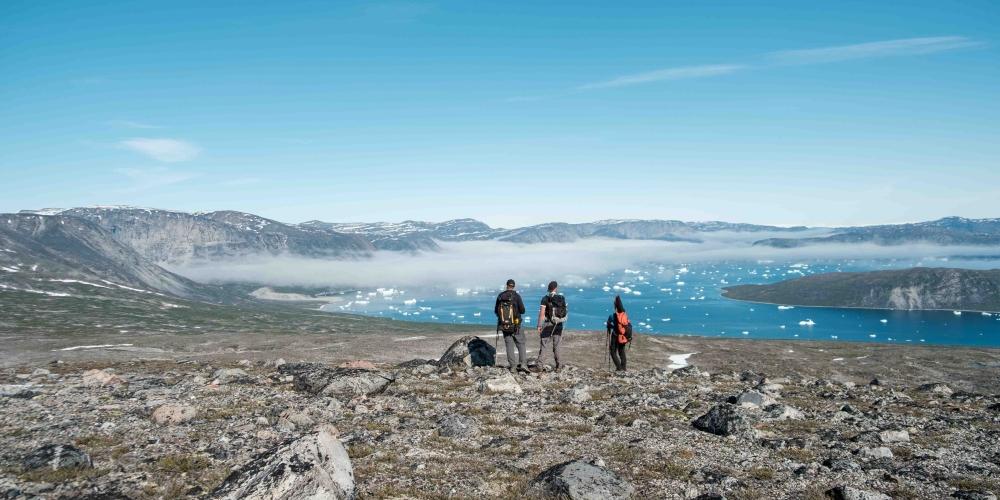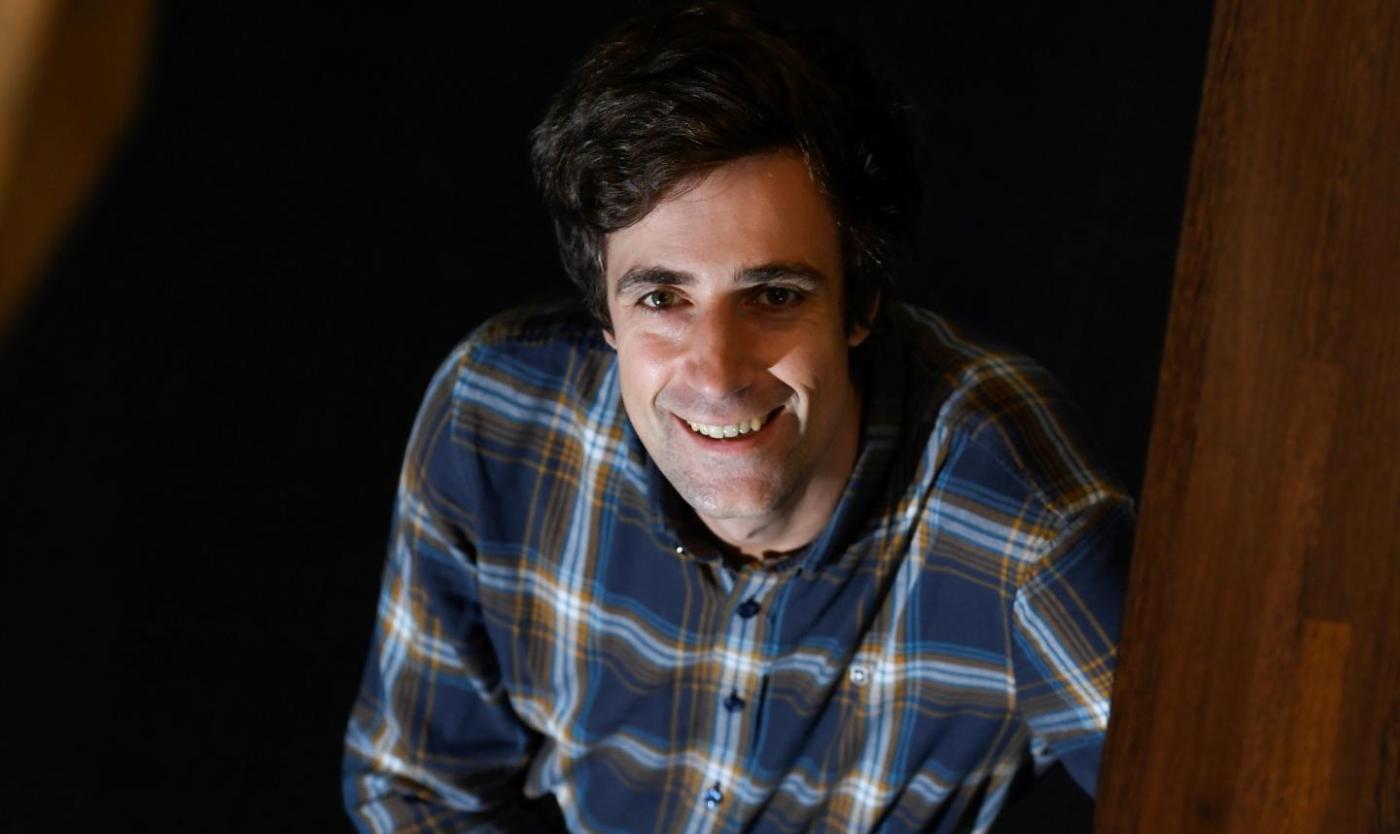
From November 10th to 21st, the world will gather in Brazil for the annual UN climate conference COP 2025 to negotiate climate measures. The scientific basis for these measures comes from sources such as the six-yearly IPCC climate report. The next edition of this report will be published in 2028. Hundreds of international experts contribute to the report. The three Belgian authors all have ties to VUB, as does one of the British authors.
Mother Earth's 200,000 glaciers are melting. Professor Harry Zekollari (Department of Water and Climate) is investigating how quickly they are disappearing and what the consequences are, including for sea level rise. His team consists of ten glaciologists. They create sophisticated models that predict the past and future evolution of glaciers. You can read how this works here.
Harry is one of three Belgian researchers contributing to the seventh IPCC Report (Intergovernmental Panel on Climate Change), the United Nations' major climate report. All three have ties with VUB. Have they already started writing?
Harry Zekollari: "The kick-off is at the end of this year in Paris. The final version must be ready by October 2027, with several interim deadlines. The IPCC does not conduct its own research. We summarise recent climate studies. A scientific state of affairs, so to speak. The closer the deadline approaches, the more studies will come in from scientists who still want to share their results."
The previous report dates from 2022. What is new?
"We do not expect any breaks in the trend. The latest climate projections will, however, provide a more accurate picture of the effects: a little more here, a little less there. Climate science is becoming increasingly robust and reliable, thanks to better climate and impact models."
Also in the field of glacier research?
"Certainly. In the run-up to the deadline, we will be working on 'model intercomparison projects' together with glacier research groups from around the world. We will then compare our glacier models, in the hope that they confirm each other. For example, our model predicts that approximately 25 percent of the global glacier mass will melt away by 2100 if global warming is limited to 1.5 to 2 degrees. With more severe warming, that figure rises to 50 percent. If the models of those other research groups predict roughly the same, it increases the credibility of the results."

What will your job be?
"Glaciers and sea level rise are my areas of expertise, but I will have to take a broader view, looking at the cryosphere as a whole. That encompasses everything to do with ice, including sea ice, ice caps, permafrost, etc. And that will be in a chapter on long-term stabilisation, which looks at so-called 'overshoot scenarios'."
What are those?
"They allow you to see what will happen if we fail to meet the Paris Agreement targets and are therefore unable to limit global warming to 1.5 degrees above pre-industrial levels. Suppose we warm up to 1.7 or 1.8 degrees and then get the temperature back down again: what effect would that have on Earth's systems? We look further into the future, to around 2300 and sometimes even further."
Hadn't we already given up on that 1.5 degrees?
"Not given up, but it will indeed be difficult."
How would we get the temperature down again?
"By removing CO₂ from the atmosphere. In the report, this is called CDR, Carbon Dioxide Removal. This can be done naturally, for example by planting forests, or with the help of new techniques that are yet to be developed. Some people are also considering SRM, Solar Radiation Modification. This is a form of geo-engineering that would reflect sunlight, for example by introducing sulphur dioxide or other small particles into the atmosphere. This is a controversial issue, though."
Why?
"We don't know if it would work, and there are many uncertainties and risks involved. A significant portion of SRM research is supported or funded by fossil fuel lobby groups. The fossil fuel industry knows that its party is coming to an end, but wants to delay that end for as long as possible. Yet these companies have known about the consequences of CO₂ emissions for a long time. We know this from leaked documents. Their projections perfectly predicted how the temperature would rise between 1980 and 2000."
Do those voices belong in the climate report?
"Some colleagues are strongly opposed. Personally, I don't think we should do that kind of research ourselves, but I don't think you're a lackey of the fossil fuel lobby if you mention those studies and discuss their feasibility. With the necessary critical sense, of course."
"The US, the country with the world's brightest researchers, is now only providing one author"
What about American input in the next climate report?
"It has decreased so much. The National Oceanic and Atmospheric Administration (NOAA) is one of the most important climate institutes in the world. For the previous IPCC report, they provided ten authors. Now there is only one – someone who is about to retire. Anyone in America who works for a federally funded institution is no longer allowed or dares to apply to be an author. Fortunately, researchers from universities still can."
Is that a significant loss?
"It's dramatic. Some of the world's leading climate researchers can no longer contribute their knowledge. Recently, another national climate report was published in the US, written by climate deniers and full of errors. This is fake science in a country where the the world's brightest minds conduct research. I find it shocking."
Here, we still believe in science, but there is a lot of climate fatigue.
"Despite everything, the EU is doing well. It's too slow and it's a process of trial and error, but we are on the way to climate neutrality."
"After the United Kingdom, Belgium ranks second among the countries that have emitted the most CO₂ per capita, through our coal and steel industry"
Global emissions continue to rise. Why should Europe suffer economically for the climate transition when we are only responsible for 6 percent of those CO₂ emissions?
"I understand the climate fatigue. Why would you buy a train ticket for 370 euros when you can fly for 40 euros? My answer to that is: why aren't flying and kerosene taxed more, and why isn't rail better subsidised? If we invest in the transition now, we will save the costs associated with climate change. Those costs are enormous. And calculations show that it will also yield more in the long term. China is still a major CO₂ emitter, but green energy is booming there. That transition is coming. It's also about historical justice."
How so?
"We have become rich by emitting a lot of CO₂. After the United Kingdom, Belgium ranks second among the countries that have emitted the most per capita, through our coal and steel industry. Who will pay for that damage? Even today, we still score higher per capita than China."
According to IPCC's Bart van den Hurk, climate experts should not be overly alarmist and should also talk about solutions.
"Our main task is to provide science: we apply mathematics and physics to the Earth system and see what happens. And we share that knowledge. The rest is a matter of personality. Some scientists jump on the barricades. I think a message comes across as more credible if you convey it neutrally. Everything is so polarised these days. You have to be for or against, left or right, vegetarian or meat eater. Whereas it's just science. You can't be for or against climate physics. All I can say is: living in a world that is 2.5 degrees warmer is very different from a world that is only 1.6 degrees warmer. If every country does what it promises now, we are heading for an increase of 2.7 degrees. That will have major consequences. Every tenth of a degree we can shave off is important."
Authors IPCC
The three co-authors of the seventh IPCC climate report have ties with VUB.
Chris Smith is a British senior researcher within the Water and Climate research group at VUB and at the International Institute for Applied Systems Analysis (IIASA) in Austria. He is contributing to the first part of the climate report as coordinating lead author.
David De Vleesschouwer studied and obtained his doctorate at VUB and now works at the University of Münster in Germany. As a paleoclimatologist, he researches climate systems in the distant past. He is one of the lead authors of the first part of the climate report.
Yuri Rogelj is a professor at Imperial College London and lead author of several IPCC reports, including the Special Report on Global Warming of 1.5°C (2018) and the Sixth IPCC Report (AR6). He is lead author of the third part of the new climate report. He helped shape the carbon budget that underpins the Paris Climate Agreement. In 2025, he received an honorary doctorate from VUB.